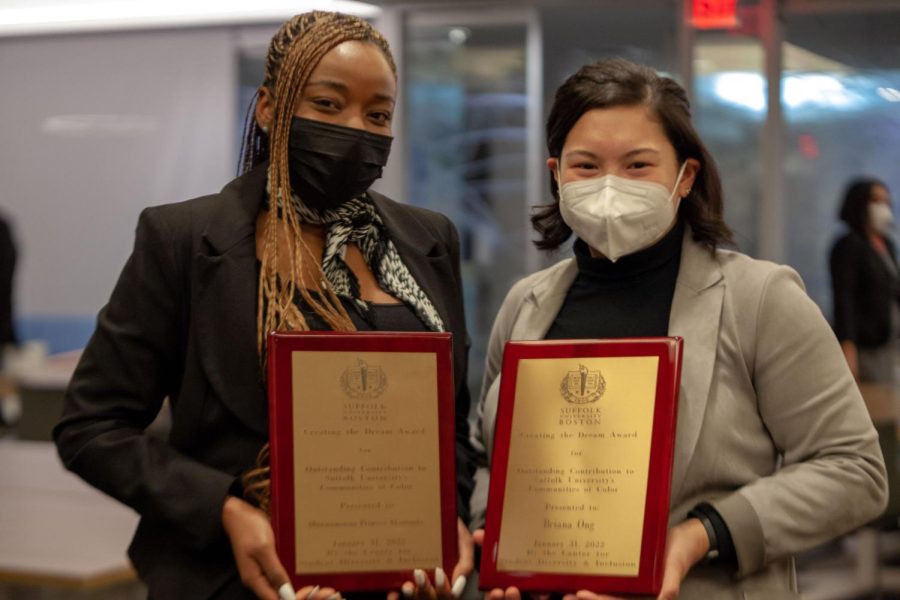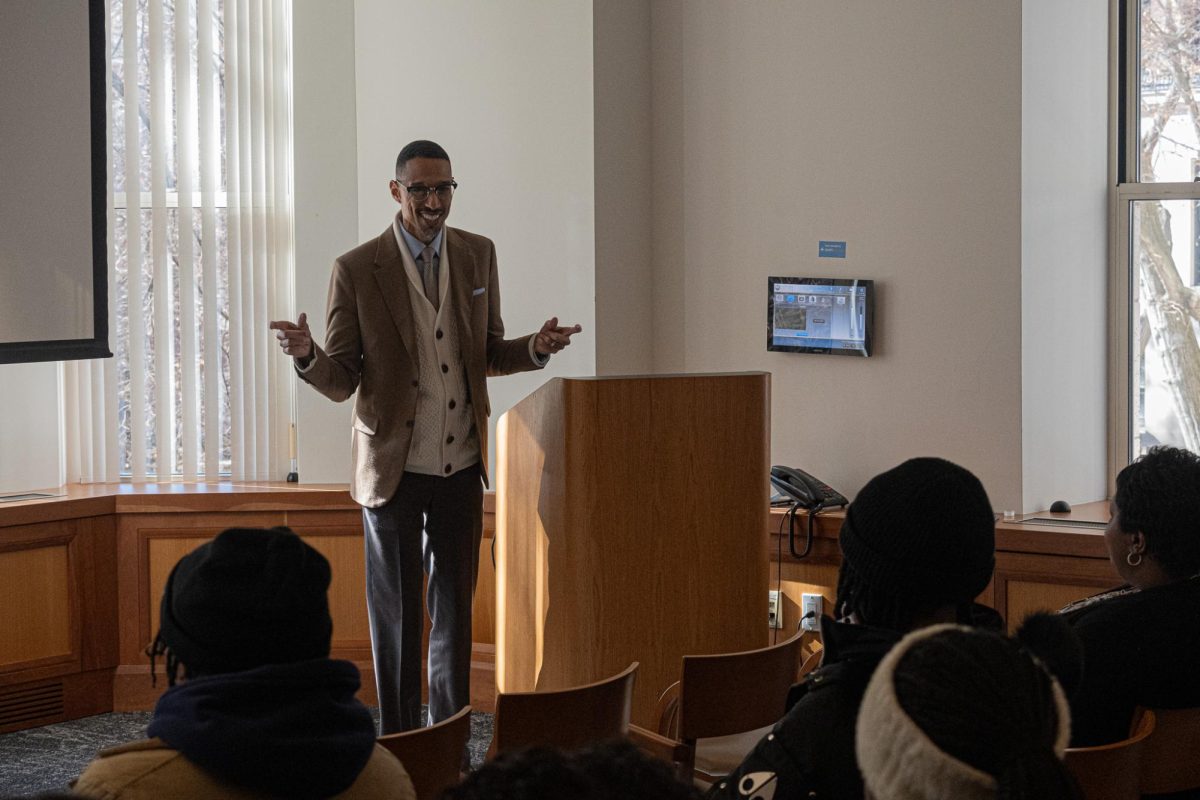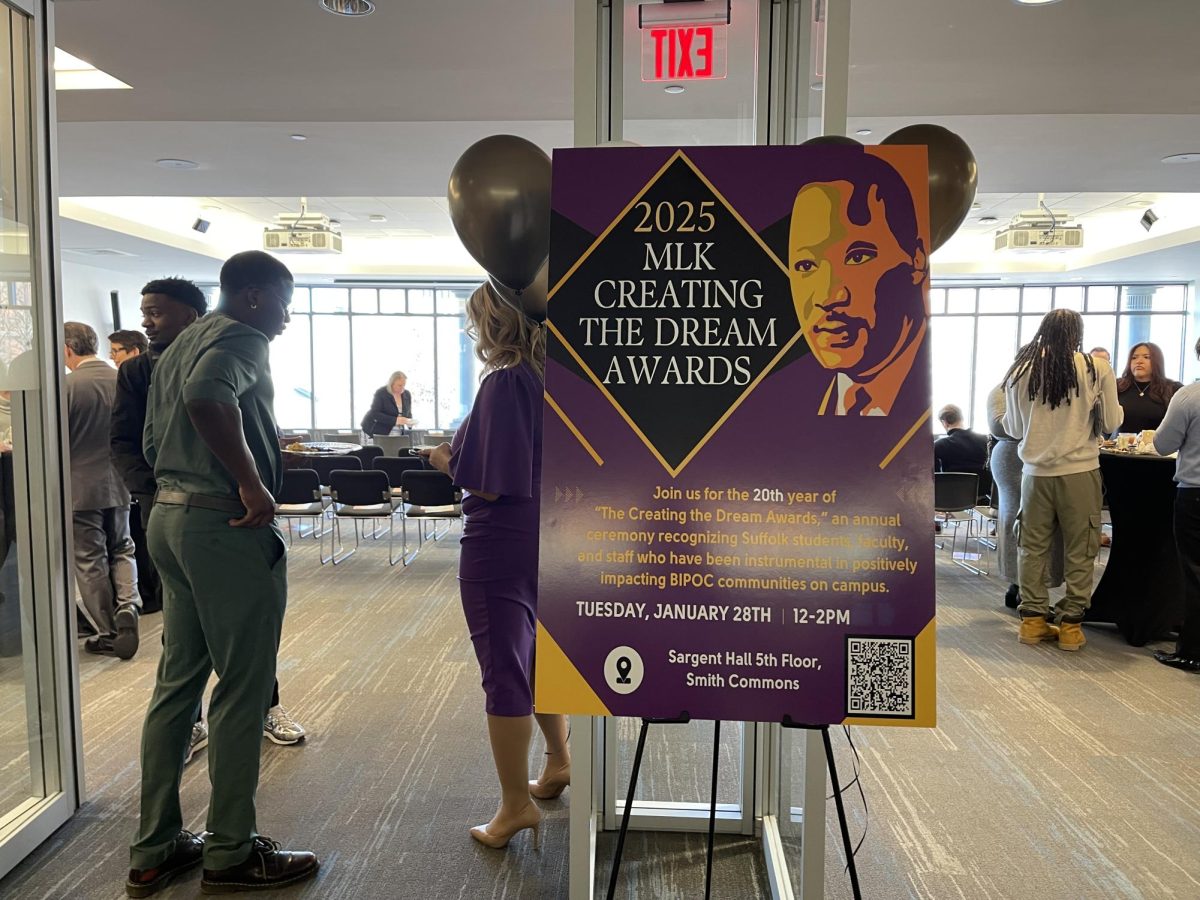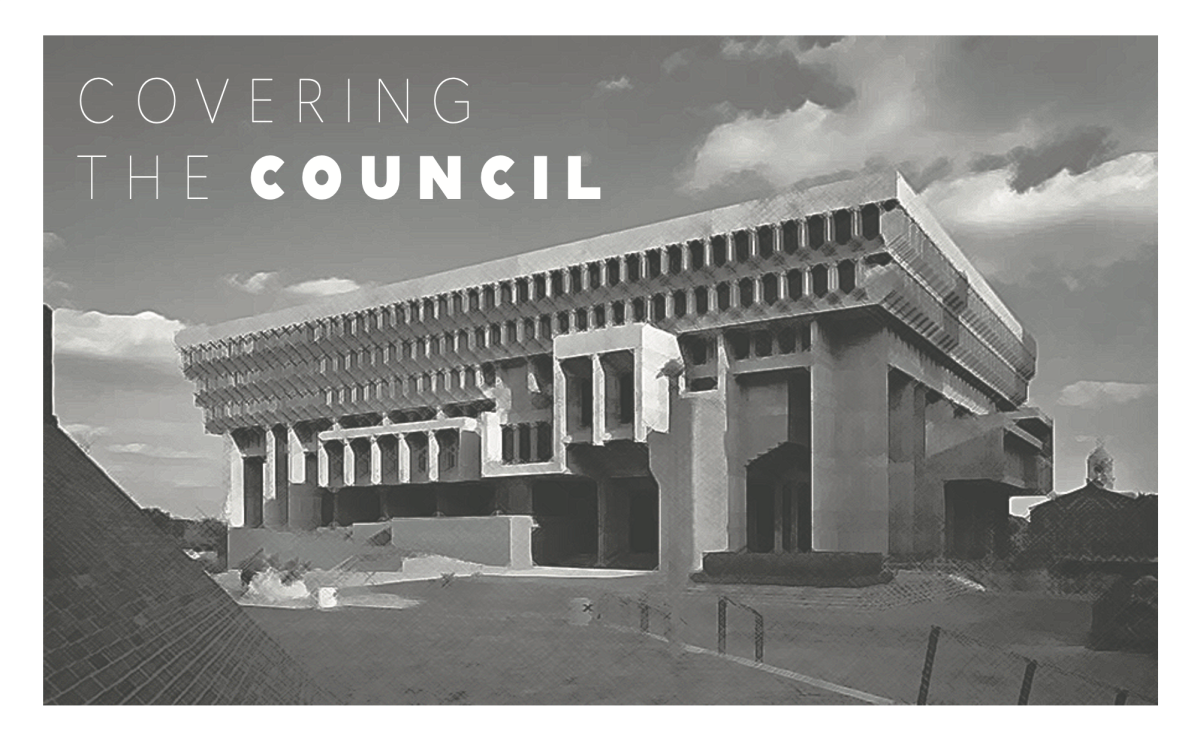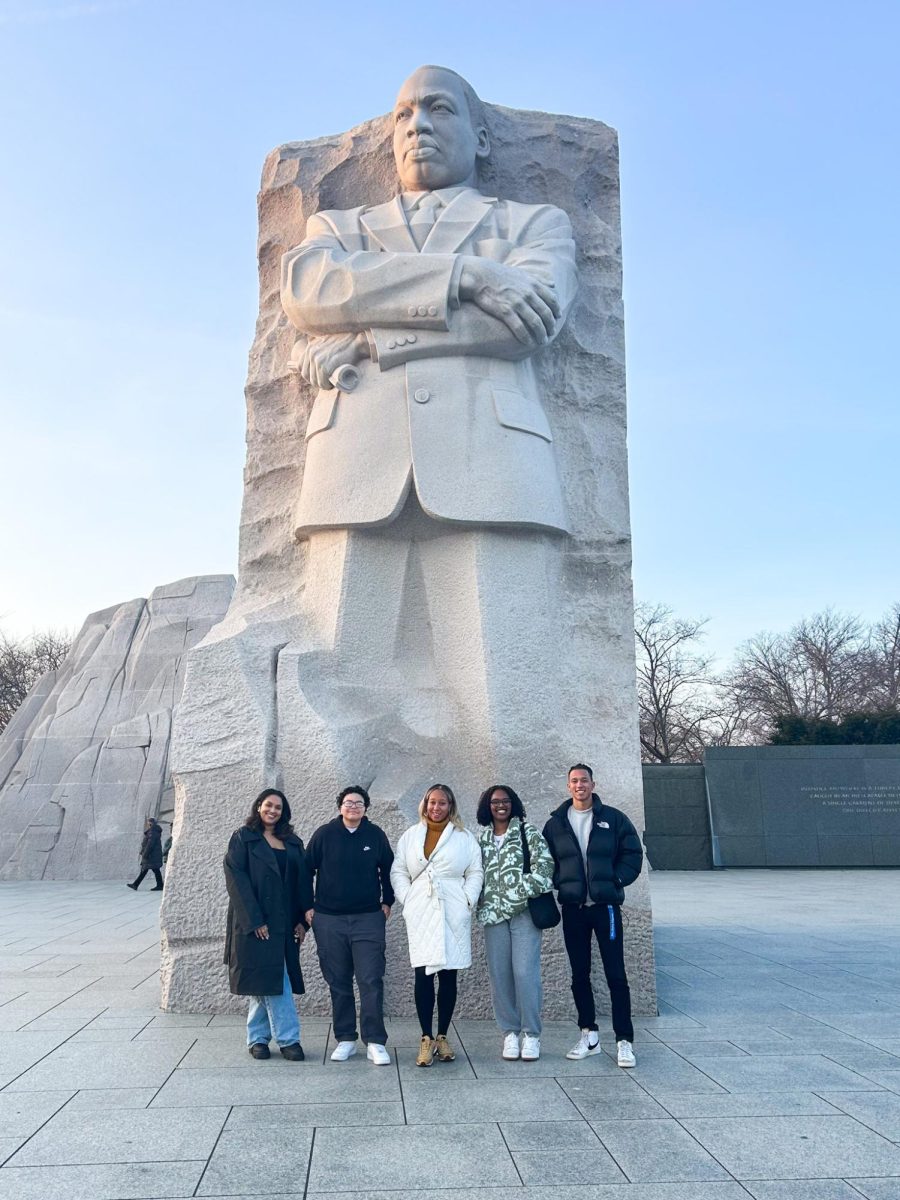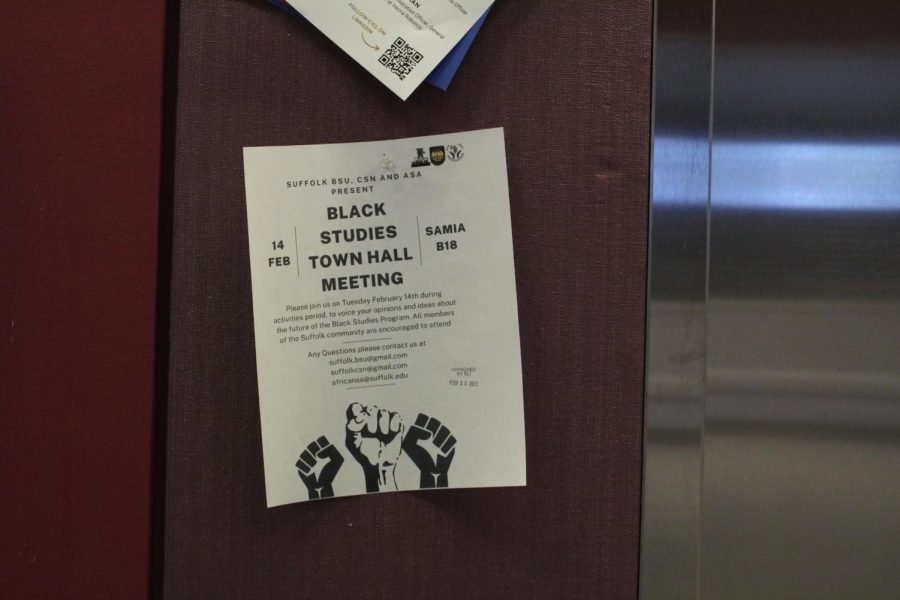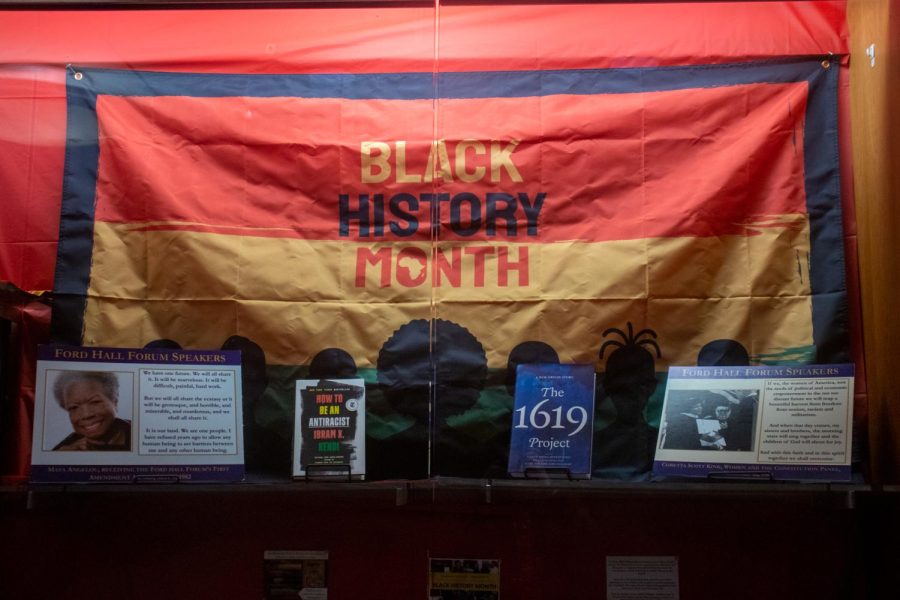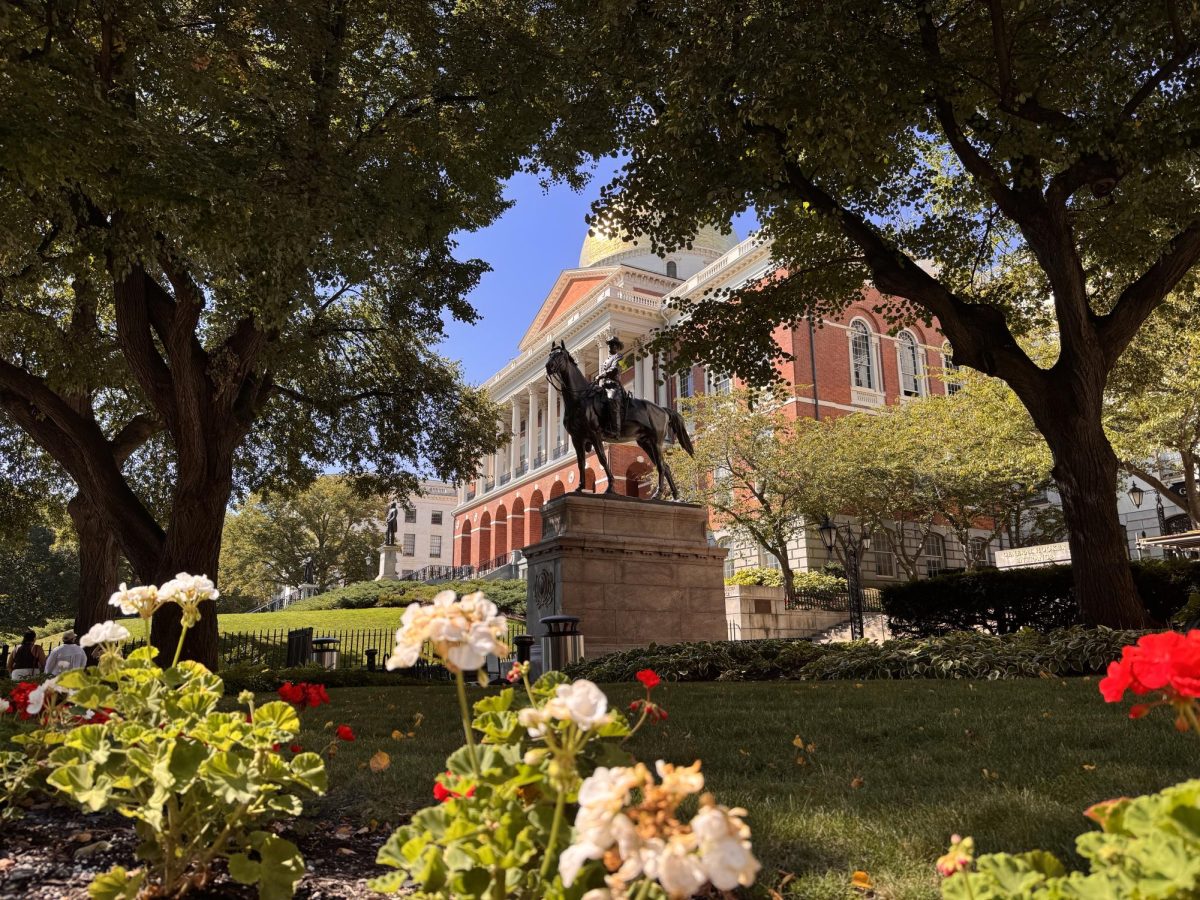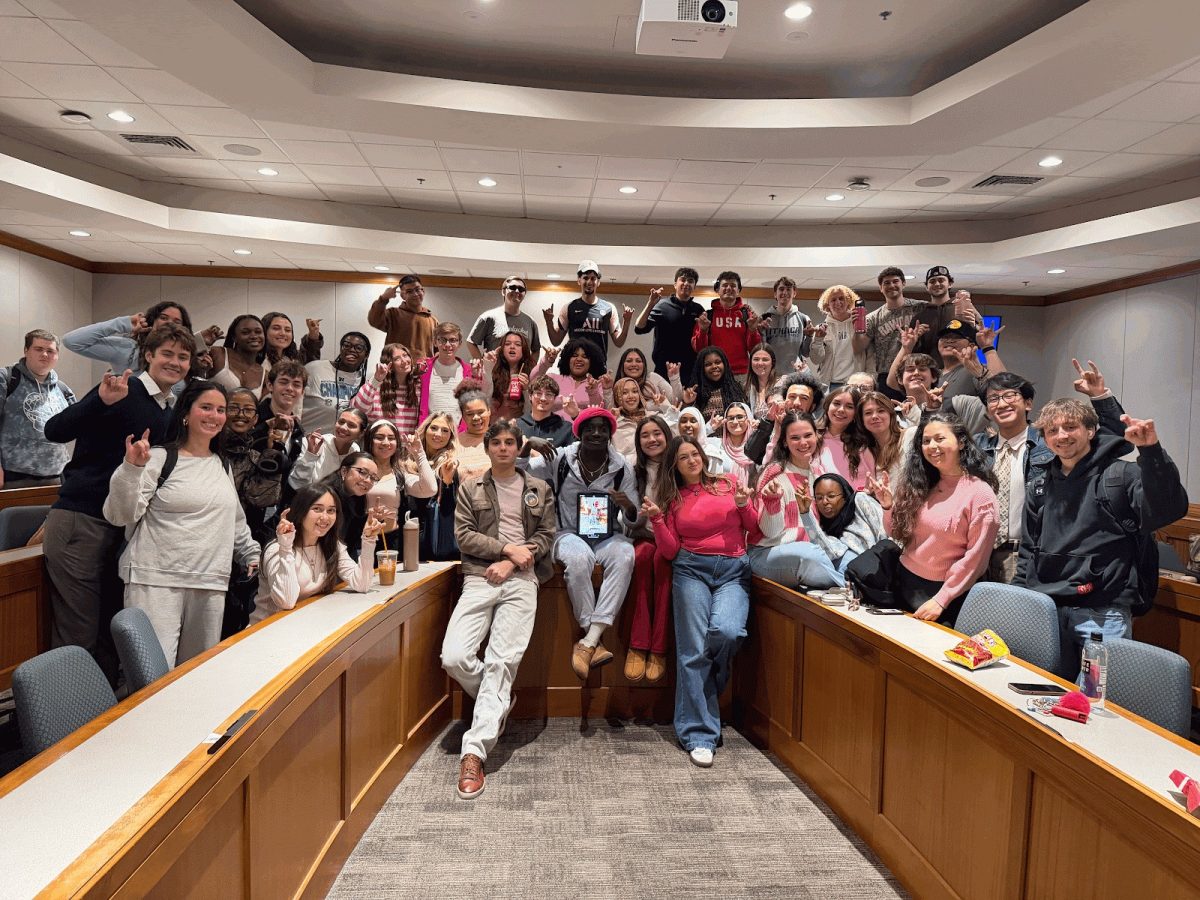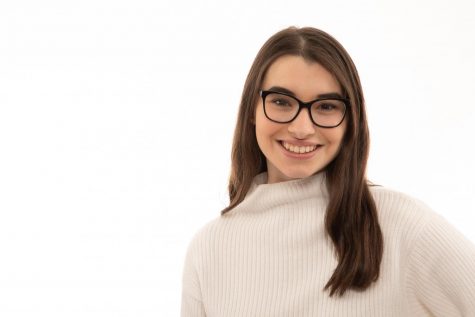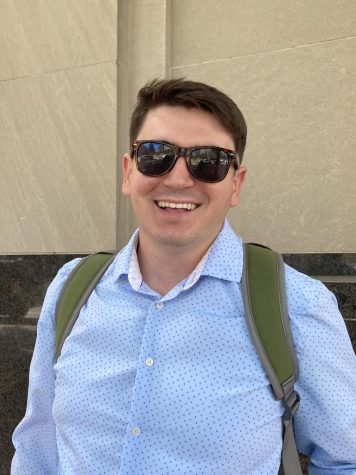In a two-part event, Suffolk University Celebrated the life and legacy of Martin Luther King Jr. through the work being done today by newly-elected State Senator Lydia Edwards and three members of the Suffolk community.
Edwards spoke to the Suffolk community at the MLK Creating the Dream Award ceremony on Jan. 20 about how Dr. King’s impacts her service in the communities she represents.
As the first woman and person of color to represent the First Suffolk and Middlesex district, Edwards said there has not been a time when dealing with social justice and politics where she has not thought about Dr. King.
“I personally have found that Dr. King’s teachings about radical truth and conscious love to be integral to my ability to get things done in a district that I do not ethnically represent; in a district that has, in many cases, some of the hardest racialized conversations in history; in a district that is dealing with mass displacement and immigration crisis,” Edwards said.
“In that district, you must be grounded in conscious love and radical truth,” Edwards continued.
When Edwards was a legal services attorney, she helped pass the Domestic Worker Bill of Rights in MA that was led by women of color, many of who were undocumented. She said the legislation created new benefits and protections for domestic workers.
“The Domestic Worker Bill of Rights was a legal policy movement-based law that was grounded deeply and firmly in love, and that is fundamentally how King won and how we won this law,” said Edwards.
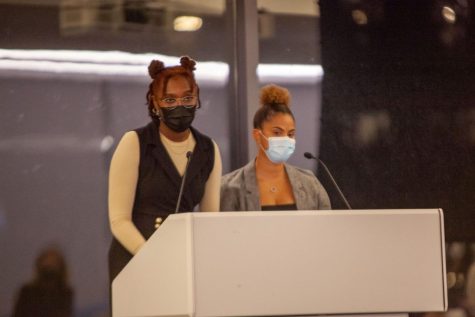
Along with Edwards, Reverend Amy Fisher, the university chaplain, provided the audience with an inspirational moment when citing Dr. King’s essay, “The Purpose of Education.” A recording was played of Suffolk a capella group Soulfully Versed singing the Black national anthem, “Lift Every Voice and Sing.”
The Creating the Dream Award ceremony was able to welcome guests in-person and online Monday. The award has been a tradition at Suffolk since 2005, and recognizes the efforts of an individual, organization or department at the university that works toward creating an inclusive and safe climate for members of the university and has a sustained and tangible positive impact on Suffolk’s community of color.
The winners of this year’s award spanned across the university, representing professors, undergraduates and law students.
Joyya Smith, Suffolk’s vice president for diversity, access & inclusion, spoke about her two favorite King quotes that encompassed the award winners.
“King was noted as saying ‘intelligence plus character, that is the goal of true education.’ Our award winners are lifelong learners gaining and sharing their knowledge,” Smith said.
President Marisa Kelly presented the awards to the three winners, congratulating them on their accomplishments.
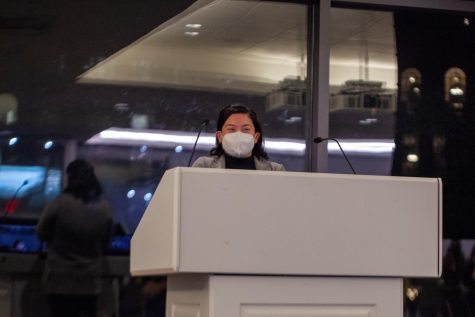
Briana Ong, the first recipient of the evening, is a third-year law student at Suffolk Law and president of the Asian Pacific American Law Student Association. As a certified student attorney within the immigration clinic at Suffolk Law, Ong represents a client seeking asylum and has interned at the Asian task force against domestic violence.
“Briana has been essential in creating a sense of community among the Asian American population at the law school,” said one nominator. “She deserves this award because without her, the Suffolk experience would have felt much less inclusive for myself and many others.”
The second winner, Tumi Akinyombo, is a senior and president of the African Student Association. Kelly explained that Akinyombo has been the president of the club for the last three years, was a SUPER and is working on a fundraising gala for visually impaired Africans with ASA.
“[Tumi] has fervently shown her commitment to living out the mission of the ASA and educating the campus community about the rich experience and culture of Africa,” said a nominator.
The final winner of the award was Professor René Reyes, whose teaching and scholarship focuses on constitutional law, race in the law, criminal procedure and critical race theory, according to Kelly. Reyes has served on the law school’s diversity and inclusion committee and as the faculty co-advisor for the Latin American Law Students Association.
“Professor Reyes does not shy away from the desecrate impact that BIPOC communities have worn as a result of the country’s most unjust criminal justice system. Despite pushback, Reyes has never shied away from highlighting these disparities and fostering these conversations in the classroom. For that as a POC myself, I am tremendously grateful,” said one nominator.
The winners also inspired members of the audience.
“It inspired me today hearing of their accomplishments outside of Suffolk and how they bring them and integrate [them] to fit different organizations and classes and their peers,” said Student Government Association President Angela El Jazzar.
Cameron Breither, assistant director of CSDI, led a campus reading of Dr. King’s “Nonviolent and Social Change” speech. The speech was the fourth of five speeches by King for the Massey Lecture series between November and December of 1967.
“In these times of upheaval and change, the words of Dr. King, both those often celebrated and less familiar, feel more urgent than ever before both as a guide and as a warning,” said Breither.
King’s speech covered topics such as civil disobedience, unjust society and white power structures. For those in attendance, like BSU President Lindsay Dieudonne, the speech showed the image of King that isn’t watered down.
“I really think that image of Dr. Martin Luther King is the one we should be pushing out there: the man that was arrested for saying the right things to the wrong people. The man who wasn’t afraid to speak his mind. The man who pushed buttons that needed to be pushed to be in the society that we are today,” said Dieudonne. “We need to continue to push those buttons because honestly there is still change that needs to be done.”
The speech was read in four parts by S’corra Thimas, Casey Mulcare, Hanan Tuffaha and Jenny Joseph-Hayle. Thimas felt that she was honoring the words of King that are not often heard enough.
“It was definitely really powerful, I’m honored. He was a figure in my life growing up… I’m in awe that I was able to do that [speech],” said Thimas.


